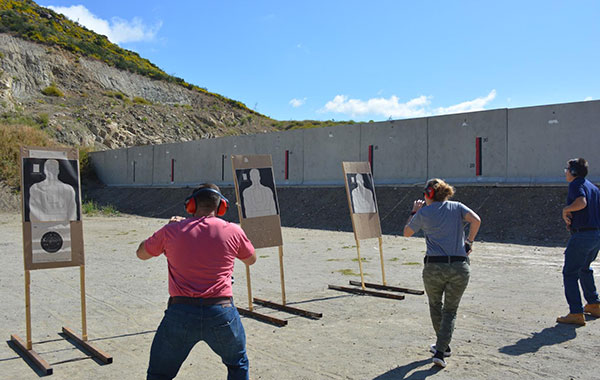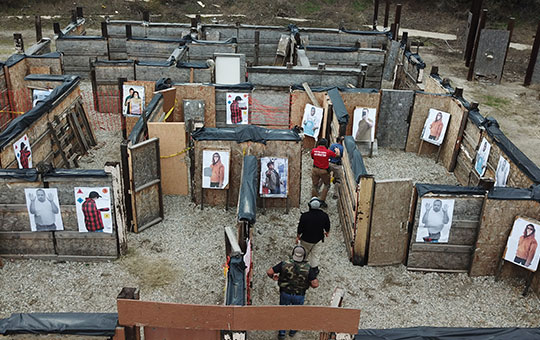
In the ever-evolving landscape of security and protection, the demand for skilled professionals has never been more pressing. Whether safeguarding assets, ensuring personal safety, or protecting sensitive information, the roles within this field are as diverse as the challenges they face.
But how does one navigate this complex terrain and truly excel? This article presents a 5-step framework designed to empower individuals at any stage of their career, equipping them with the tools and strategies necessary to rise above the rest. From mastering foundational knowledge to embracing adaptive leadership, each step is crafted to inspire confidence and ignite a passion for excellence.
So, whether you’re an aspiring security professional or a seasoned veteran seeking a fresh perspective, join us on this journey to unlock your full potential and create a lasting impact in the world of security and protection.
Develop Essential Skills

To excel in any security or protection role, developing essential skills is non-negotiable. Begin with a solid foundation in situational awareness—sharpen your ability to observe and assess environments critically.
This skill is the backbone of proactive defense; it allows you to anticipate threats before they manifest. Technical proficiency is equally vital—understand the tools of the trade, from surveillance systems to cybersecurity protocols, as technology is a relentless tide in today’s security landscape.
Beyond the technical, honing soft skills, such as communication and conflict resolution, can be transformative. Imagine navigating a high-stress scenario where your calm demeanor and articulate advice diffuse tension, guiding parties toward resolution.
Each of these elements—keen observation, technical savvy, and interpersonal finesse—intertwines to create a robust skill set that can withstand the ever-evolving challenges of the security field. Cultivating these competencies will not only elevate your professional capabilities but also enhance your confidence, empowering you to face any situation head-on.
Build a Strong Network

Building a strong network is not just about exchanging business cards or making polite conversation at industry events; it’s a dynamic tapestry woven from genuine connections. Cultivating relationships with mentors, peers, and key industry players can significantly enhance your career trajectory.
Ensuring that your network includes a diverse mix of professionals—those with different perspectives and areas of expertise—can provide invaluable insights and resources that you might not encounter within your immediate circle. Attend conferences, engage in social media discussions, and become a member of relevant associations to deepen these connections.
Remember, its not solely about what you can gain, but how you can contribute to others’ success as well; this reciprocity fosters stronger ties and opens doors to new opportunities. By nurturing these relationships over time, you forge a robust support system that can help you navigate the complexities of the security and protection landscape.
Implement Effective Strategies

To implement effective strategies in security or protection roles, one must engage in a multifaceted approach that prioritizes both proactive measures and adaptive responses. Begin by conducting a thorough risk assessment, identifying vulnerabilities that may not be immediately apparent.
Equip your team with the latest technological tools, but equally emphasize the importance of human intuition—instinct and quick decision-making can thwart even the most sophisticated threats. Training sessions should be dynamic, incorporating real-world scenarios and simulations that challenge your team to think creatively and act decisively.
Moreover, foster an environment where open communication thrives, encouraging team members to share insights and lessons learned from past incidents. Finally, review and refine your strategies regularly; the landscape of security is ever-evolving, and staying ahead of potential challenges demands continuous improvement and innovation.
Conclusion
In conclusion, excelling in any security or protection position requires a strategic approach built on a solid framework. By understanding the core principles of risk assessment, effective communication, continuous training, ethical decision-making, and leveraging technology, professionals can significantly enhance their effectiveness and impact in the field.
Institutions like Pacific West Academy provide essential resources and training that can empower individuals to implement this framework successfully, fostering a new generation of security experts who are well-equipped to navigate the complexities of modern threats. Embracing these steps not only enhances personal growth but also contributes to the broader goal of ensuring safety and security in our communities.











